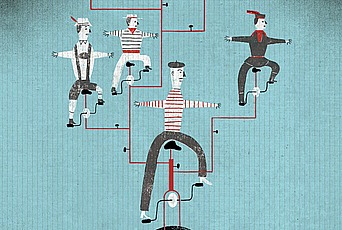Joseph E. Stiglitz
Affiliation
From the Nobel Foundation:
His work on the economics of uncertainty led naturally to the work on information asymmetries, and more generally, imperfect information. In the work on the economics of uncertainty, he explored the consequences, given beliefs about probability distributions, say, of prices and outputs, of economic behavior. The standard theory not only had assumed that there was a complete set of markets for these risks, but that beliefs about these probability distributions were exogenous, unaffected by any actions. But individuals and firms spend an enormous amount of resources acquiring information, which affects their beliefs; and actions of others too affect their beliefs...
...Another set of central insights came from the work that he had been doing in public finance (as it was called at that time; with his 1984 textbook, he helped shift the sub discipline to focus more broadly on the economics of the public sector.) As he noted in his Nobel lecture, an early insight in his work on the economics of information concerned the problem of appropriability - the difficulty that those who pay for information have in getting returns. This is, of course, the central concern of public goods, one of the main subjects within the economics of the public sector. He recognized that information was, in many respects, like a public good, and it was this insight that made it clear to him that it was unlikely that the private market would provide efficient resource allocations whenever information was endogenous. (See, e.g. Stiglitz, 1987a.) Much of the subsequent work was trying to define more precisely the nature of the market failures.
"Joseph E. Stiglitz: Biographical," Nobel Foundation (2001)
Nobel Laureate, The Sveriges Riksbank Prize in Economic Sciences in Memory of Alfred Nobel, 2001
